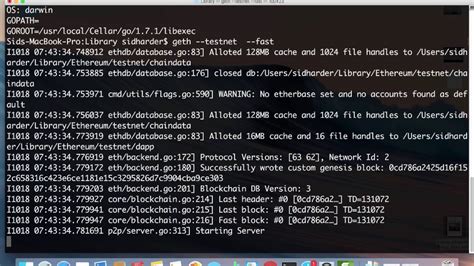Getting the Ethereum Contract ABI with Ethers.js
Ethereum provides several ways to obtain an executable Solidity contract bytecode (ABI) from a known smart contract address. In this article, we’ll explore two methods using Ethers.js, a popular JavaScript library for interacting with the Ethereum blockchain.

Method 1: Using Ethers.js’s loadContract method
The loadContract method allows you to load an existing Solidity contract bytecode from a URI or file path.
const ethers = require('ethers');
// Load contract ABI from known address
async function getAbi(address) {
try {
const contract = new ethers.Contract(address, 'YourContract ABI', { gas: 200000 });
constabi = await contract.getABI();
return abi;
} catch (error) {
console.error(error);
}
}
// Example usage:
getAbi('0x..._known_address_here...')
.then((abi) => console.log(abi))
.catch((error) => console.error(error));
In this example, replace YourContract ABI with the actual ABI of your smart contract. The loadContract method returns a new instance of the contract object, which can be used to call methods and access properties.
Method 2: Using Ethers.js’s abiFromRaw method
The abiFromRaw method allows you to parse an existing Solidity contract bytecode from a raw string or file.
const ethers = require('ethers');
// Parse contract ABI from known address
async function getAbi(address) {
try {
const raw = '0x..._known_address_here_raw';
const abi = await ethers.utils.abiFromRaw(raw);
return abi;
} catch (error) {
console.error(error);
}
}
// Example usage:
getAbi('0x..._known_address_here...')
.then((abi) => console.log(abi))
.catch((error) => console.error(error));
This method parses the raw contract bytecode and returns a new instance of the ethers.utilsABI module, which contains the parsed ABI.
Example Use Case
In your React application, you can use Ethers.js to load an existing smart contract bytecode from a known address. For example:
import React from 'react';
import Web3 from 'web3';
import { ethers } from 'ethers';
const Web3 = new Web3(window.ethereum);
function App() {
const contractAddress = '0x..._known_address_here...';
const contractABI = await getAbi(contractAddress);
const contractInstance = new ethers.Contract(contractAddress, contractABI, Web3);
// Use the contract instance to call functions and access properties
}
export default App;
By using Ethers.js’s loadContract or abiFromRaw methods, you can easily obtain an executable Solidity contract bytecode from a known smart contract address and interact with it in your React application.
Bir yanıt yazın